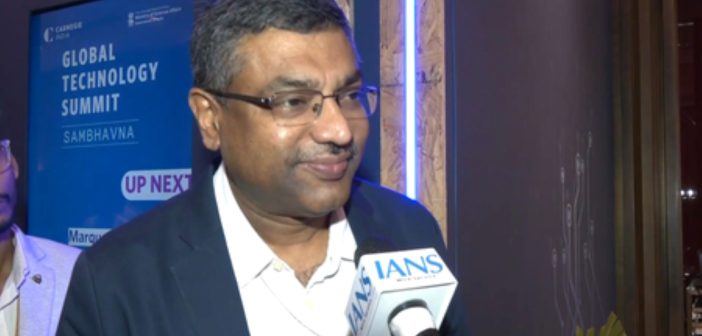India is not content with merely participating in the global artificial intelligence (AI) revolution—it aims to lead it. According to S Krishnan, Secretary of the Ministry of Electronics and Information Technology (MeitY), this is a defining moment for the nation to scale AI adoption across both government and businesses. Speaking at the Global Technology Summit held in the capital, Krishnan outlined India’s ambitious vision to position itself at the forefront of AI innovation and deployment.
Krishnan emphasized that India is taking decisive measures to ensure it remains at the cutting edge of technological advancements. “We are doing what we can to make sure that we stay up to date and don’t fall behind. India should stay at the front end of technology—and that is the effort we are making,” he stated. Calling AI the next transformative opportunity for India, he drew parallels between AI’s potential and the “Y2K moment,” which served as a turning point for the country’s IT sector.
The IT Secretary outlined a multi-faceted approach aimed at shaping the future of AI by fostering innovation, promoting inclusivity, and advocating for global collaboration. “India is looking to lead by example, especially in building collaborations among democratic nations. Our focus is on compute, foundational models, skills development, and creating an AI ecosystem that is democratic and inclusive,” he noted.
Krishnan highlighted that India’s approach to AI regulation would prioritize enabling innovation rather than imposing restrictive barriers. “Regulation should not be about guardrails that throttle opportunity. It should be about enabling meaningful, safe, and wide-scale deployment of AI,” he explained. This balanced strategy underscores India’s commitment to developing AI frameworks that empower stakeholders while ensuring responsible usage.
Rejecting a headline-driven approach centered on announcing massive investments, Krishnan stressed the importance of pursuing tangible outcomes with long-lasting impact. “If you chase investment numbers, you won’t get enough conversions. This summit is about real commitments and measurable impact,” he stated. He underscored the need for sustainable strategies and genuine results over superficial benchmarks.
Krishnan invoked the example of India’s Mars Orbiter Mission, commonly referred to as the “Mangalyaan moment,” to describe the transformative potential of AI in the Indian context. He expressed hope for a similar landmark achievement in AI development that would propel the nation into a leadership role on the global stage. Comparing AI to India’s Digital Public Infrastructure (DPI), he envisioned it becoming a national resource capable of driving immense impact across critical sectors.
The IT Secretary pointed to early success stories as evidence of AI’s transformative potential. Examples such as Krishi AI, which leverages artificial intelligence to enhance agricultural practices, and advancements in AI-driven defense operations, serve as proof that the technology can deliver significant and meaningful outcomes in vital areas. These pilot projects offer a glimpse into how AI can address India’s most pressing challenges, from food security to national defense.
Krishnan also underscored the importance of inclusivity and collaboration, advocating for a multi-stakeholder approach that involves civil society, academia, and think tanks. “We want to create space for civil society, academia, and others to be part of the conversation. In fact, sometimes I feel we’re spending more time consulting than doing,” he remarked, highlighting the government’s efforts to ensure a participatory and inclusive process in shaping AI policies.
As the global landscape for AI evolves, India’s strategy to lead the movement reflects its aspirations to build a future driven by technological excellence and human-centric innovation. By focusing on collaboration, inclusivity, and scalable deployment, India aims to not only compete but thrive as a key player in the global AI race.





